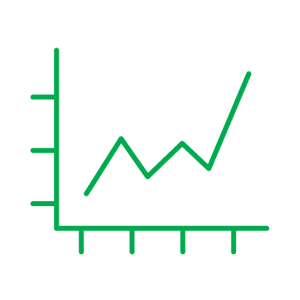Thủ Thuật Hướng dẫn Which of the following is not a way in which the internet is used by purchasing managers? Chi Tiết
You đang tìm kiếm từ khóa Which of the following is not a way in which the internet is used by purchasing managers? được Cập Nhật vào lúc : 2022-10-27 20:40:15 . Với phương châm chia sẻ Bí kíp Hướng dẫn trong nội dung bài viết một cách Chi Tiết 2022. Nếu sau khi Read nội dung bài viết vẫn ko hiểu thì hoàn toàn có thể lại Comment ở cuối bài để Ad lý giải và hướng dẫn lại nha.
Purchasing Manager responsibilities include:
- Developing, leading and executing purchasing strategies
- Tracking and reporting key functional metrics to reduce expenses and improve effectiveness
- Crafting negotiation strategies and closing đơn hàng with optimal terms
 Nội dung chính Show
Nội dung chính Show
- Purchasing Manager responsibilities include:
- Responsibilities
- Requirements and skills
- Hiring Purchasing Manager job description
- Post this Purchasing Manager job description job ad to 18+ không lấy phí job boards with one submission
- PMITM by IHS Markit
- Key benefits of PMI data
- Global PMI summary as of September 2022
- PMI enables
- Asset
management firms - Equity and fixed income desks
- Commodity and FX desks
- Corporate business planners
- Supply chain managers
- Central banks
- Methodology and coverage
- 2022 Explore: Energy Nhật bản
- PMI™ by IHS Markit Global – How global economies are recovering through the third quarter from COVID-19 lockdowns
- PMI Resources
- Solutions you may also be interested in
- Follow Us
Job brief
As a Purchasing Manager you will be responsible for sourcing equipment, goods and services and managing vendors. The successful candidate will be able to perform strategic procurement activities across multiple categories of spend, search for better đơn hàng and find more profitable suppliers.
Responsibilities
- Develop, lead and execute purchasing strategies
- Track and report key functional metrics to reduce expenses and improve effectiveness
- Craft
negotiation strategies and close đơn hàng with optimal terms - Partner with stakeholders to ensure clear requirements documentation
- Forecast price and market trends to identify changes of balance in buyer-supplier power
- Perform cost and scenario analysis, and benchmarking
- Assess, manage and mitigate risks
- Seek and partner with reliable vendors and suppliers
- Determine quantity and timing of deliveries
- Monitor and forecast upcoming levels of
demand
Requirements and skills
- Proven working experience as Purchasing Manager, Agent or Officer
- Familiarity with sourcing and vendor management
- Interest in market dynamics along with business sense
- A knack for negotiation and networking
- Working experience of vendor management software
- Ability to gather and analyse data and to work with figures
- Solid judgement along with decision making skills
- Strong leadership
capabilities - BS degree in supply chain management, logistics or business administration
Hiring Purchasing Manager job description
Post this Purchasing Manager job description job ad to 18+ không lấy phí job boards with one submission
Start a không lấy phí Workable trial and post your ad on the most popular
job boards today.
PMITM by IHS Markit
Use the Purchasing Managers’ Index (PMI) for accurate and timely insight into the health of the global economy.
Purchasing Managers’ Index™ (PMI™) data are compiled by IHS Markit for more than 40 economies worldwide. The monthly data are derived from surveys of senior executives private sector companies and are
available only via subscription. The PMI dataset features a headline number, which indicates the overall health of an economy, and sub-indices, which provide insights into other key economic drivers such as GDP, inflation, exports, capacity utilization, employment and inventories. The PMI data are used by financial and corporate professionals to better understand where economies and markets are headed, and to uncover opportunities.
PMI FAQ available. Watch a short video on how to use PMI.
Learn more about Purchasing Managers’ Index® (PMI®)
Get PMI™ insights straight to your inbox Sign up for your
custom daily newsletter
Investment Manager Index (IMI) Survey Unlock comprehensive monthly insights into investor sentiment
Key benefits of PMI data
![]() Timeliness
Timeliness
PMI data are released monthly, in advance of comparable official
economic data
![]() Comparability
Comparability
PMI data are compiled using proven standardized methodology, with indices available for over 40 countries
 Factual
Factual
PMI data are compiled from survey questions tracking actual changes in
business volumes such as output, not sentiment-based questions
![]()
No revisions
Unlike many official economic indicators, PMI data are not revised after publication
Global PMI summary as of September 2022
- The global economy expanded for a fourteenth straight month in August
- The
rate of expansion was the slowest since January. - Both manufacturing and service sectors contributed to the easing of growth as COVID-19 cases rose around the world and induced further caution.
- Impeded by sustained supply-side constraints, global manufacturing growth fell to the lowest in 14 months.
- PMI sub-indices also showed a lengthening of average supplier lead times to an extent exceeded only twice in the survey’s 23-year history, linked in turn to yet
another steep rise in prices and underscoring the unprecedented supply chain pressures faced by firms.
Stay up-to-date with timely insight into the health of the global economy through PMI™ Commentary and Analysis
PMI enables
Asset
management firms

By tracking relative national and sector growth, productivity, profit margin and price trends, PMI data are used in asset allocation models and strategies, and in portfolio performance analysis.
Equity and fixed income desks

National PMI data are indicative of changing macroeconomic conditions, with detailed sector data providing further guidance for equity and bond price trends, earnings analysis, dividend forecasting and default probability.
Commodity and FX desks

With advance signals of interest rate, economic growth and inflation trends, as well as commodity supply and demand patterns and resulting price changes, foreign exchange and commodity traders are able to seek out new opportunities.
Corporate business planners

Financial planners and strategists benefit from a better understanding of how the economic environment is changing by country and sector, and what this means for key markets, industries and competitors, as well as their own company’s performance.
Supply chain managers

The PMI is an essential tool for benchmarking and forecasting sales, inventory and price trends, monitoring supply and demand, and tracking supplier performance.
Central banks

PMI data provide the most up to date
assessment of current economic conditions, are highly correlated with central bank policy decisions and have frequently been instrumental in changes to monetary policy.
Methodology and coverage
Survey methodology
Each national PMI dataset is compiled from questionnaire responses from a survey panel of senior purchasing executives (or similar) around 400
companies. The survey panels are carefully recruited to accurately represent the true structure of the monitored sector: manufacturing, services, construction or the entire private sector economy.
The survey questionnaire covers the following economic variables:
Manufacturing
Output
New orders
New export orders
Backlogs of work
Output prices
Input prices
Suppliers’ delivery times
Stocks of finished goods
Quantity of purchases
Stocks of purchases
Employment
Future output
Services
Business activity
New business
New export business
Outstanding business
Prices charged
Input prices
Employment
Future activity
Whole Economy
Output
New orders
New export orders
Backlogs of work
Output prices
Overall input prices
Purchase prices
Staff costs
Suppliers’ delivery times
Quantity of purchases
Stocks of purchases
Employment
Future output
Construction
Total activity
Residential activity
Commercial activity
Civil engineering activity
New orders
Employment
Quantity of purchases
Suppliers’ delivery times
Input prices
Sub-contractor usage
Sub-contractor availability
Sub-contractor rates
Sub-contractor quality
Future activity
Questionnaires are completed in the second half of each month, and survey results are then processed by our economists. For each variable, panel members are asked to report an increase, decrease or no change compared with the previous month, and to provide reasons for any changes.
Index methodology
PMI indices are calculated as diffusion indices. For each variable, the index is the sum of the percentage of ‘higher’ responses
and half the percentage of ‘no change’ responses. The indices vary between 0 and 100, with a reading above 50 indicating an overall increase compared to the previous month, and below 50 an overall decrease. The indices are then seasonally adjusted using an in-house method developed by IHS Markit.
PMI indices are only available via subscription with the exception of a headline index. The headline index influences financial markets and receives considerable truyền thông coverage upon release.
The headline index is calculated differently depending on the sector being monitored:
Manufacturing and Whole Economy
The headline figure is the Purchasing Managers’ Index™ (PMI). The PMI is a weighted average of the following five indices: New Orders (30%), Output (25%), Employment (20%), Suppliers’ Delivery Times (15%) and Stocks of Purchases (10%). For the PMI calculation the Suppliers’ Delivery Times Index is inverted so that it moves in a comparable direction to
the other indices.
Services
The headline figure is the Services Business Activity Index. This is a diffusion index calculated from a question that asks for changes in the volume of business activity compared with one month previously. The Services Business Activity Index is comparable to the Manufacturing Output Index.
Construction
The headline figure is the Total Activity Index. This is a diffusion index that tracks changes in the total
volume of construction activity compared with one month previously. The Total Activity Index is comparable to the Manufacturing Output Index and Services Business Activity Index.
Learn more about the PMI survey methodology.
Using PMI data
PMI datasets are used by governments, financial institutions and corporates for forecasting, analysis
and planning, helping to monitor key economic variables:
- GDP
- Manufacturing output / service sector output
- CPI/inflation indicators
- Producer input prices
- Exports and trade flow indices
- Employment/non-farm payrolls
- Productivity
- Profitability
- Factory/durable goods orders
- Backlogs of works/capacity indicators
- Supplier delivery times
- Inventory indicators
- Purchasing activity
Global coverage
PMI data are available for over 40 countries across a range of broad sectors:
Manufacturing
Australia
Austria
Brazil
Canada
China
Colombia
Czech Republic
France
Germany
Greece
India
Indonesia
Ireland
Italy
Nhật bản
Malaysia
Myanmar
Mexico
Netherlands
Philippines
Poland
Russia
South Korea
Spain
Taiwan
Thailand
Turkey
United Kingdom
United States
Vietnam
GLOBAL
EUROZONE
ASEAN
Services
Australia
Brazil
China
France
Germany
India
Ireland
Italy
Nhật bản
Russia
Spain
United Kingdom
United States
GLOBAL
EUROZONE
Whole Economy
Egypt*
Ghana
Hong Kong
Kenya
Lebanon
Mozambique
Nigeria
Qatar*
Saudi Arabia*
Singapore
South Africa
Uganda
United Arab Emirates*
Zambia
*Non-oil sector
Construction
France
Germany
Ireland
Italy
United Kingdom
EUROZONE
Sector coverage
In addition to providing national macroeconomic indicators, PMI data are also compiled for detailed sectors for a number of regions, allowing specific industry trends to be monitored:
Global
Europe
Asia
US
Basic Materials
•
•
•
•
Chemicals
•
•
•
Resources
•
•
•
Forestry & Paper Products
•
•
•
Metals & Mining
•
•
•
Consumer Goods
•
•
•
•
Automobiles & Auto Parts
•
•
•
Beverages & Food
•
•
•
Food
•
•
Beverages
•
•
Household & Personal Use Products
•
•
•
Consumer Services
•
•
•
•
Media
•
•
Tourism & Recreation
•
•
Consumer Cyclicals
•
Consumer Non-cyclicals
•
Financials
•
•
•
•
Banks
•
•
•
Insurance
•
•
Other Financials
•
•
Real Estate
•
•
•
Healthcare
•
•
•
•
Healthcare Services
•
•
•
Pharmaceuticals & Biotechnology
•
•
•
Industrials
•
•
•
•
Industrial Goods
•
•
•
Machinery & Equipment
•
•
•
Construction Materials
•
•
•
Industrial Services
•
•
•
Commercial & Professional Services
•
•
•
General Industrials
•
•
•
Construction & Engineering
•
Transportation
•
•
•
Technology
•
•
•
•
Technology Equipment
•
•
•
Software & Services
•
•
•
Telecommunication Services
•
Experts

Chris Williamson
Mr. Williamson is Chief Business Economist and an executive director S&P Global Market Intelligence. He is a well-known economic commentator and is regularly
quoted in international business print and broadcast press, and frequently speaks conferences on global economic issues. Mr. Williamson also sits on a number of economic advisory panels.Mr. Williamson joined the company in 2008 following the acquisition of NTC Economics, a provider of global macro-economic indicators, where he played a major role developing a world-leading provider of business surveys and economic indicators, including the PMI series. PMI surveys now encompass all major
economies and are commonly cited as some of the most important sources of economic information available to central banks, financial markets and business decision makers.He studied Economics the University of Nottingham and Economic Development the University of Manchester.
- Financial Services
Country / Territory Risk- Economics
- Financial Indices
- Sourcing and Supply
Chain - Purchasing Managers’ Index (PMI)
View Profile

Jingyi
Pan
Jingyi joined S&P Global Market Intelligence PMI team in 2022, bringing with her research experiences across both macroeconomics and financial markets. Her focus is on the Asia-Pacific region and can often be seen sharing her analysis and commentary across international business print and broadcast press.Prior to joining the company, Jingyi had been a Senior Market Strategist with an investment brokerage firm and had work experience in economic forecasting, planning and
policy.Jingyi received her Bachelor of Social Sciences (Honours) in Economics from the National University of Singapore and Master of Science in Applied Finance from the Singapore Management University. She is bilingual in English and Chinese.
- Financial Services
- Financial Indices
- Purchasing Managers’ Index (PMI)
View Profile
Events

2022 Explore: Energy Nhật bản
18 November 2022 |
Asia Pacific Navigating for Success in the Upstream Evolution

PMI™ by IHS Markit Global – How global economies are recovering through the third quarter from COVID-19 lockdowns
06 November 2022 Get the earliest insight into how global economies are recovering through the third quarter from COVID-19 lockdowns from the world’s
leading survey…
PMI Resources
Solutions you may also be interested in
Explore
- Financial Services
Follow Us
Oct 26
The combined picture across the #G4 suggests the developed world is entering a contraction, mild for now but with f… https://t.co/hDdnnqWeuJ
Oct 26
Oct 26
October flash #PMI data showed economic contractions gathering pace
in the US, eurozone and UK, leaving Nhật bản as th… https://t.co/qx6dDcdPpC
Oct 26
Oct 25
Heightened political and economic uncertainty across the #UK in October led business activity to fall a rate rar…
https://t.co/29jhYHSQhf
Oct 25
“items” : [ “name”:”login”,”url”:””,”enabled”:false,”desc”:”Product Login for existing customers”,”alt”:”Login”,”large”:true,”mobdesc”:”Login”,”mobmsg”:”Product Login for existing customers”,”name”:”facts”,”url”:””,”enabled”:false,”desc”:””,”alt”:””,”mobdesc”:”PDF”,”mobmsg”:””,”name”:”sales”,”override”:””,”number”:”[num]”,”enabled”:true,”desc”:”Call
Sales</br><strong>[num]</strong>”,”alt”:”Call Sales</br>[num]”,”mobdesc”:”Sales”,”mobmsg”:”Call Sales: [num]”, “name”:”chat”,”enabled”:true,”desc”:”Chat Now”,”mobdesc”:”Chat”,”mobmsg”:”Welcome! How can we help you today?”, “name”:”share”,”enabled”:true,”desc”:”<strong>Share</strong>”,”mobdesc”:”Share”,”options”:[ “name”:”facebook”,”url”:”https://www.facebook.com/sharer.php?u=http%3a%2f%2fihsmarkit.com%2fproducts%2fpmi.html”,”enabled”:true,”name”:”twitter”,”url”:”https://twitter.com/intent/tweet?url=http%3a%2f%2fihsmarkit.com%2fproducts%2fpmi.html&text=Purchasing+Managers%e2%80%99+Index%c2%ae+(PMI%c2%ae)+%7c+IHS+Markit”,”enabled”:true,”name”:”linkedin”,”url”:”https://www.linkedin.com/sharing/share-offsite/?url=http%3a%2f%2fihsmarkit.com%2fproducts%2fpmi.html”,”enabled”:true, IHS Markit&body=http%3a%2f%2fihsmarkit.com%2fproducts%2fpmi.html”,”enabled”:true,”name”:”whatsapp”,”url”:”https://api.whatsapp.com/send?text=Purchasing+Managers%e2%80%99+Index%c2%ae+(PMI%c2%ae)+%7c+IHS+Markit http%3a%2f%2fihsmarkit.com%2fproducts%2fpmi.html”,”enabled”:true], “name”:”rtt”,”enabled”:true,”mobdesc”:”Top” ]
Tải thêm tài liệu liên quan đến nội dung bài viết Which of the following is not a way in which the internet is used by purchasing managers?




Share Link Cập nhật Which of the following is not a way in which the internet is used by purchasing managers? miễn phí
Bạn vừa tìm hiểu thêm nội dung bài viết Với Một số hướng dẫn một cách rõ ràng hơn về Review Which of the following is not a way in which the internet is used by purchasing managers? tiên tiến và phát triển nhất và ShareLink Download Which of the following is not a way in which the internet is used by purchasing managers? miễn phí.

Thảo Luận vướng mắc về Which of the following is not a way in which the internet is used by purchasing managers?
Nếu sau khi đọc nội dung bài viết Which of the following is not a way in which the internet is used by purchasing managers? vẫn chưa hiểu thì hoàn toàn có thể lại phản hồi ở cuối bài để Admin lý giải và hướng dẫn lại nha
#internet #purchasing #managers